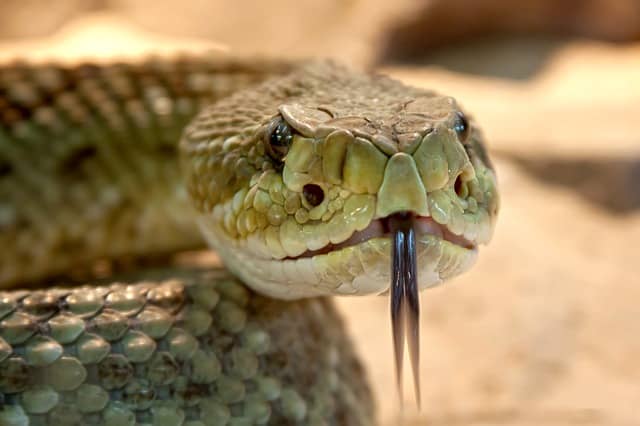Snakes in Tennessee have a bad reputation due to the poisonous ones found and publicly mentioned. Not all snakes are bad or dangerous. Snakes have been given a bad reputation since biblical times. They are not a topic that many people care to talk about either.
First of all, why do many people have this morbid fear of snakes? Is it because they crawl on the ground? Do we think they are all poisonous? Or do we think they will chase us down and bite us? Do they have slimy skin?
Furthermore, no matter what we may feel about snakes, it is a good idea to be somewhat educated about their habits and their place in the Tennessee environment.
Venomous Snakes & Species in Tennessee
The state of Tennessee has approximately 32 species of snakes along with some sub-specie varieties. There are only 4 of these snake species within the state boundaries that are venomous.
Snakes are not out to get us. They actually prefer to stay away from humans. Because they are reclusive to humans, most snakes that come into contact with people will try to crawl away to escape. Likewise, if they feel trapped or threatened they will try to defend themselves.
Due to their traits and natural habitats, we may only come into contact with many of these snake species by traveling in forests, fields or water sources.

Southern Copperhead Snake
Snakes of Tennessee Feeding Habits
Diets of snakes can vary from a large list of potential prey. Some small snakes will feed on earthworms, slugs, insects or salamanders. Other snakes living around water sources may feed on crayfish, frogs, toads or fish. Also, some snakes will feed on birds and bird eggs and will even eat other snakes.
Many snakes are very beneficial because they feed on mice, voles, rats, squirrels or rabbits. Furthermore, this is nature’s way of controlling potentially high populations of disease carrying and damaging rodents. To add, this is a very good reason not to harm snakes around barns or other areas where rodents roam.
Tennessee has 28 non venomous snake species. These snakes are various sizes and colors. Non-venomous snakes have round eye pupils and do not have the heat sensing pits. In contrast, these non-venomous snakes’ heads are not “v” shaped. Similarly, some snake species will flatten their heads when threatened though.
Common non-venomous snakes found in Tennessee:
- Black King Snake
- Hog nose snake
- Garter snake
- Rat snakes
- Water snakes
Some interesting Tennessee snake information:
- Controlling rat and mouse infestations is a beneficial trait of snakes.
- Common water snakes (non-venomous) are often mistaken for the venomous cottonmouth water moccasin.
- Most snakes can produce live young or lay eggs.
Majority of snake species can reproduce by eggs or live young. If they lay eggs they are called oviparous. Most of the snakes in the Tennessee region lay eggs.
Types of snakes that retain a soft membraned egg internally, and then expel the live young, are called ovoviviparous. Venomous snakes in Tennessee reproduce in this method.
When the snake produces live young, they are called viviparous. Eastern garter snakes are a species that produce live young.
As a result, if you ever find snake eggs, you will know they are not from venomous snakes.
If You Encounter a Snake in Tennessee
It has been reported that approximately half of venomous snake bites occur each year due people handling or some how molesting the snake. In Tennessee, it is illegal to capture, keep or kill a native venomous or non-venomous snake. An exception to the law does allow you to kill a snake inside your home or one endangering livestock such as chickens.
Above all, Tennessee snakes are very important to our ecosystem and control rodent populations.
Most noteworthy, please let snakes have their space. Walk away when if you encounter a snake.
CONNECT WITH US!
Connect with us on YouTube and follow us on social media! Facebook | Twitter | Instagram | LinkedIn or Contact Us today!

